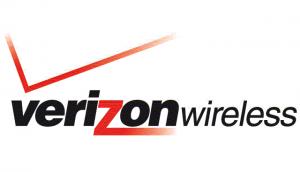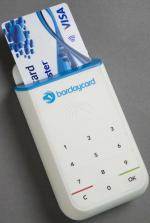Verizon Chief of New Technology: Payment Only Part of NFC's Promise

The head of new technology development for Verizon Wireless described NFC technology as a “key chain,” on which payment applications will only represent a couple of the keys.
Humphrey Chen, speaking at the MobileBeat 2011 conference in San Francisco Wednesday, reportedly said that the big U.S. telco’s Isis joint venture with AT&T and T-Mobile USA–which is associated mainly with enabling mobile payment–is only part of the potential for the technology.
In fact, according to the reports, Chen talked little about Isis’ plans and more about Verizon’s vision for NFC. He said he expects large-scale NFC rollouts beginning around 2012.
Verizon would enable a range of applications, Chen reportedly said, such as e-loyalty cards at retail outlets and suggesting the possibility for “express lanes” for customers to tap and pay. Other applications could enable users to tap their phones to enter buildings or their hotel rooms. And NFC could be used to reduce fraud for online purchases. He said Verizon would support startups to bring innovative NFC apps to users.
In one report, Chen pointed to the secure element as anchoring the key chain, and said the telco could rent out space on it to service providers.
 He talked about Verizon building an “AccessID” infrastructure, geared toward business-to-business applications, though there would be a consumer edition. The telco would put many marketing resources behind this initiative, Chen reportedly said. The secure element in the NFC phones apparently would underpin the AccessID infrastructure.
He talked about Verizon building an “AccessID” infrastructure, geared toward business-to-business applications, though there would be a consumer edition. The telco would put many marketing resources behind this initiative, Chen reportedly said. The secure element in the NFC phones apparently would underpin the AccessID infrastructure.
Chen’s comments are among the clearest yet from a Verizon representative about the carrier's plans for NFC separate from the Isis joint venture. There have been rumors that Verizon has been charting more of an independent approach to NFC, while not breaking with Isis. But Chen did not confirm these rumors. And the Isis telcos had always planned to roll out their NFC wallets separately, using Isis as an interoperable platform. It has been unclear, however, just how much autonomy the telcos' wallets will have from Isis and the Isis brand. The first Isis pilots are planned for the first half of 2012 in Salt Lake City, Utah and Austin, Texas.
Chen's comments also come as U.S. carriers and the Isis joint venture seek to find their place among an increasingly crowded field of proposed mobile wallets using NFC technology.
 The one drawing the most attention is Google Wallet, for which the search giant has signed up a number of high-profile partners, including No. 3 mobile carrier Sprint, Citigroup, MasterCard Worldwide, First Data and major retailers–though it only works with one phone model at present, the Google Nexus S 4G. Sprint earlier dropped out of the planned Isis consortium.
The one drawing the most attention is Google Wallet, for which the search giant has signed up a number of high-profile partners, including No. 3 mobile carrier Sprint, Citigroup, MasterCard Worldwide, First Data and major retailers–though it only works with one phone model at present, the Google Nexus S 4G. Sprint earlier dropped out of the planned Isis consortium.
Sources told NFC Times that Visa Inc. has also been gearing up for an NFC launch as early as August as it seeks to capture the momentum from rivals. There is no word yet on major banking partners, though Visa did announce 14 mostly small financial institutions in the United States and Canada would be involved in the launch of its digital wallet later this year. The wallet is not only focused on NFC.
Verizon’s Chen, trying to assert what he considers the central role mobile operators will play in rolling out NFC, contended in his presentation Wednesday that Verizon was originally key to the success of Google's Android mobile operating system. The telco launched a huge marketing campaign to back the introduction of the Motorola Droid in November of 2009, he noted. "Suddenly, the Droid became relevant to the masses," Chen said.
The implication is that Verizon would play a similar role in energizing NFC in the United States.












